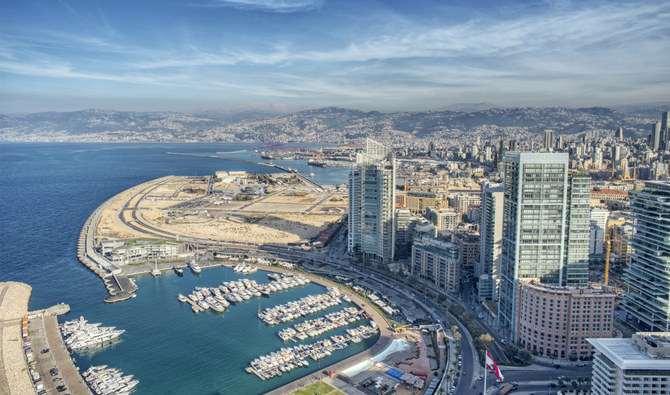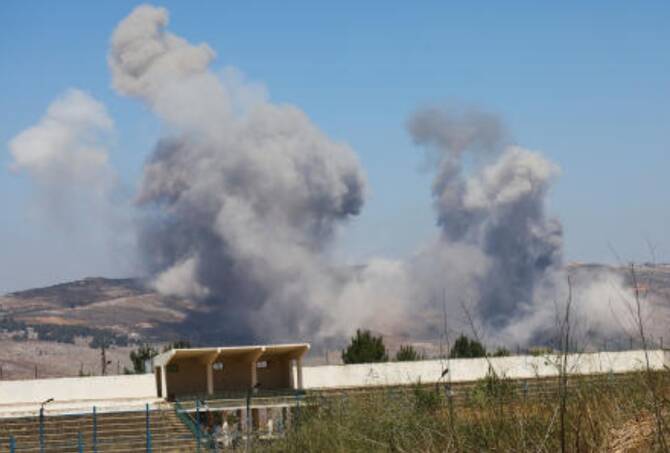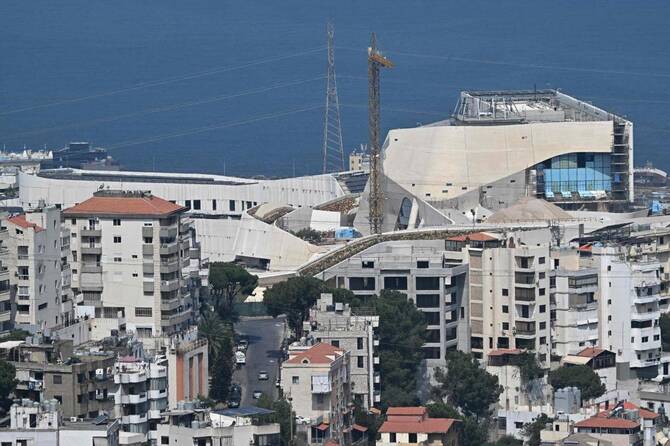BEIRUT: Elections held by professional syndicates in Lebanon over the past few weeks have not ended in tangible change.
The results of polls for the Lebanese bar associations, the Order of Pharmacists of Lebanon, and the Lebanese Press Editors’ Syndicate returned expected candidates, while the elections of the Lebanese Dental Association were suspended after a fight broke out between members.
Hezbollah members, meanwhile, entered the vote counting hall and proceeded to destroy ballot boxes.
However, the elections of the Order of Engineers and Architects saw the only official breach for the opposition candidates.
The last of these elections were those of the Press Editors’ Syndicate, which was held on Wednesday and saw an unprecedented voter turnout exceeding 73 percent. Twenty-seven candidates contested 12 seats on the syndicate’s council.
Joseph Kosseifi, the re-elected head of the syndicate, told Arab News that “journalists are part of this Lebanese society, but the syndicate is not politicized. It is the least politicized of the liberal professions syndicates. It is normal for journalists to have political tendencies, however, the work of the syndicate is related to the profession.”
Many of the candidates had called for change. May Abi Akl, who scored the second largest number of votes among the candidates who lost, was one of them. She noted that her decision to run for election “aimed at bringing about change within the Press Editors’ Syndicate and preventing the election of a closed list that only represents itself. Our objective was to introduce new blood into the syndicate and we were able to stir up the still water.”
As the results were announced on Wednesday night, the opposition candidates chanted “down with the rule of the ruling class.” However, Kosseifi said: “Whoever wants real change has to be a partner within the public assemblies and this is not happening. All the revolution on the streets was able to achieve is make people protest and scream. Apart from that, they failed to achieve a qualitative breach.”
Activist Dr. Ziad Abdel Samad said that “the elections of the liberal professions syndicates gave indications regarding the alignment of the ruling parties. Their performance was not good, even among themselves. We saw the Shiite duo, the Amal Movement and Hezbollah, working alone, while the Future Movement-Progressive Socialist Party alliance was somewhere else. On the other hand, the weakness of the ruling parties was not matched by a unified opposition.
“There are two opinions within the opposition. Some say that holding on to pure opposition will not achieve anything and that it sometimes needs an alliance with the opposing political forces to bring down the symbols of the ruling class. For example, an alliance between the opposition forces and the Kataeb Party could make a difference in regards to removing the representatives of the Free Patriotic Movement. However, others stress the importance of unifying all of the forces that are not part of the ruling class to be able to confront it,” Abdel Samad explained.
Electoral expert Zeina El-Helou told Arab News: “The political forces, no matter how opposed to the ruling class, want to build an alliance with me in order to take from me, not to give me. There are fundamental differences between the forces of the revolution and the opposing political forces. We do not agree on any political objective. How can we be their allies? They tell us to be their allies now and oppose them in Parliament. Does that mean that we are replacing one party of the ruling class with another party? We do not want to fight battles in Parliament. We want the Parliament to work. We want to make changes.”






















